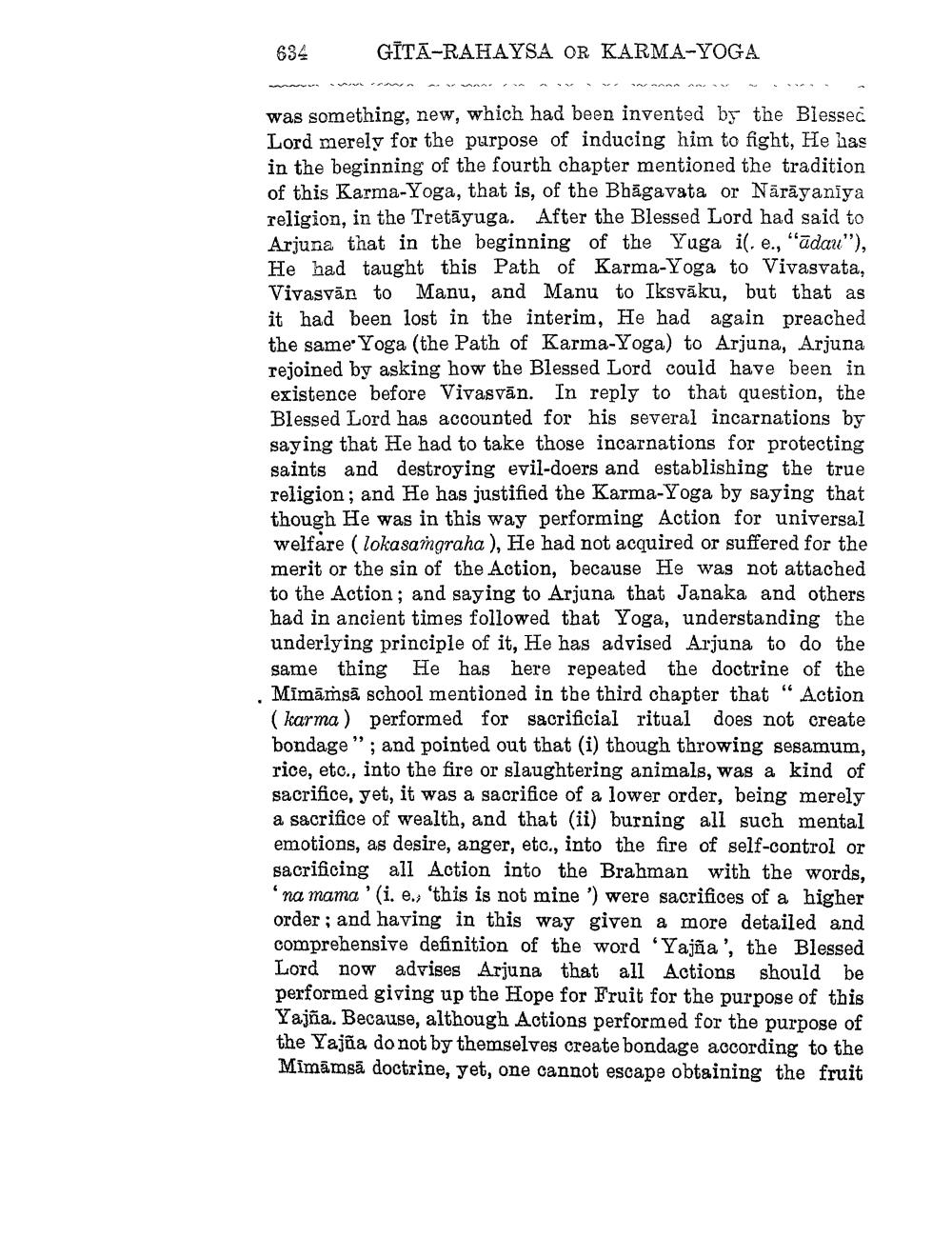________________
634
GĪTA-RAHAYSA OR KARMA-YOGA
was something, new, which had been invented by the Blessed Lord merely for the purpose of inducing him to fight, He has in the beginning of the fourth chapter mentioned the tradition of this Karma-Yoga, that is, of the Bhāgavata or Nārāyaniya religion, in the Tretāyuga. After the Blessed Lord had said to Arjuna that in the beginning of the Yuga i(. e., "'ādau"), He had taught this path of Karma-Yoga to Vivasvata, Vivasyān to Manu, and Manu to Iksvāku, but that as it had been lost in the interim, He had again preached the same Yoga (the Path of Karma-Yoga) to Arjuna, Arjuna rejoined by asking how the Blessed Lord could have been in existence before Vivasvān. In reply to that question, the Blessed Lord has accounted for his several incarnations by saying that He had to take those incarnations for protecting saints and destroying evil-doers and establishing the true religion; and He has justified the Karma-Yoga by saying that though He was in this way performing Action for universal welfare (lokasarngraha), He had not acquired or suffered for the merit or the sin of the Action, because He was not attached to the Action; and saying to Arjuna that Janaka and others had in ancient times followed that Yoga, understanding the underlying principle of it, He has advised Arjuna to do the same thing He has here repeated the doctrine of the . Mīmāmsā school mentioned in the third chapter that “ Action
( karma) performed for sacrificial ritual does not create bondage"; and pointed out that (i) though throwing sesamum, rice, etc., into the fire or slaughtering animals, was a kind of sacrifice, yet, it was a sacrifice of a lower order, being merely a sacrifice of wealth, and that (ii) burning all such mental emotions, as desire, anger, etc., into the fire of self-control or sacrificing all Action into the Brahman with the words, 'na mama'(i. e., 'this is not mine') were sacrifices of a higher order; and having in this way given a more detailed and comprehensive definition of the word 'Yajña', the Blessed Lord now advises Arjuna that all Actions should be performed giving up the Hope for Fruit for the purpose of this Yajña. Because, although Actions performed for the purpose of the Yajña do not by themselves create bondage according to the Mimāmsā doctrine, yet, one cannot escape obtaining the fruit




